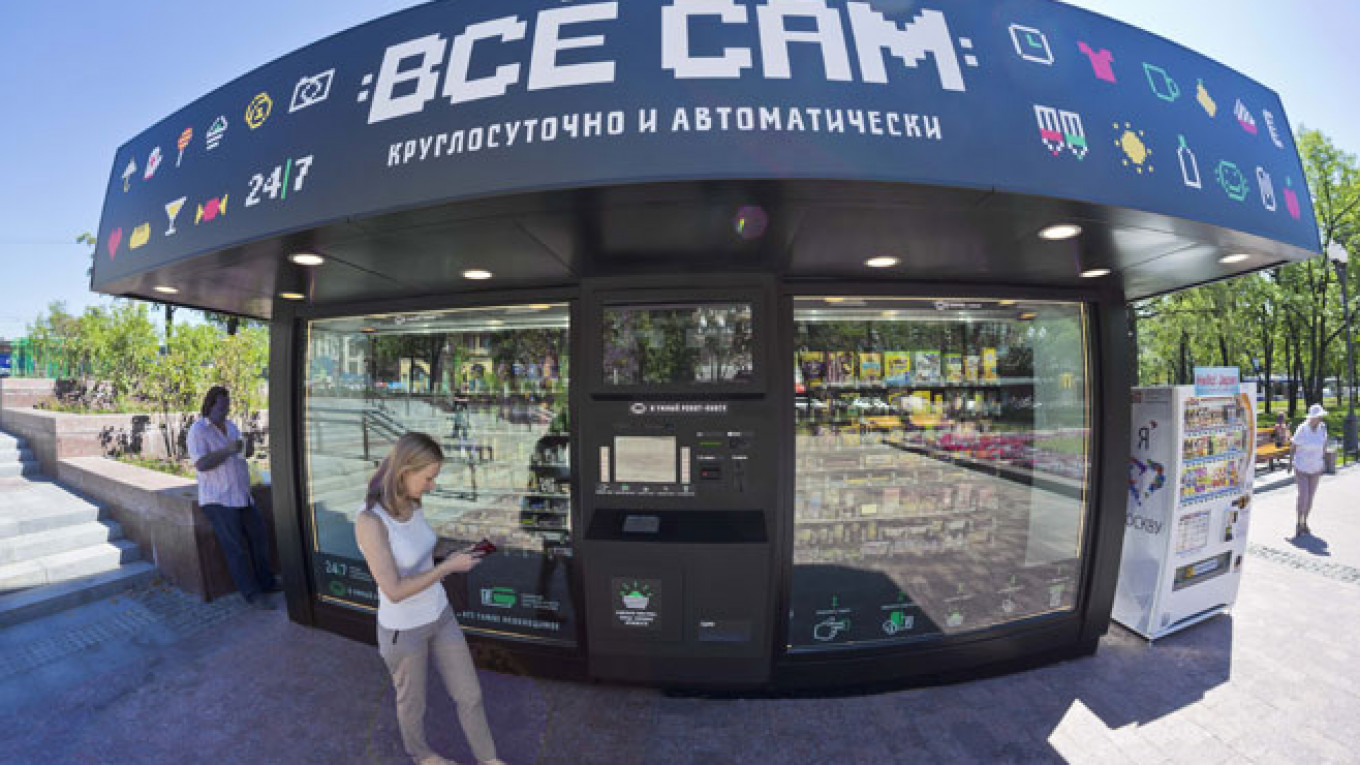Mayor Sergei Sobyanin's crusade against street kiosks in central Moscow has entered a new phase with the installation of about 60 colossal "new breed" vending machines in the city over the next two months.
The souped-up vending machines will offer a wide range of goods, from food and hygiene products to mobile phones and tickets for public transport, Alexei Nemeryuk, head of the city's trade and services department, was quoted as saying by Prime on Tuesday.
Beer and cigarettes will not be sold by the machines, Nemeryuk said, adding that fruit and vegetable vending would also be "problematic" for them.
They will be installed and operated by private investors, and the bidding process for the available sites will get under way in the near future. City Hall will have no say in the pricing of the different products, Nemeryuk said, Prime reported.
A pilot version of the vending machines, complete with reinforced glass and a "robot interface" that communicates with customers, has already been set up near Moscow's Pushkin Square, offering up 214 different goods, including milk, cereals and shoe brushes, often at more expensive prices than at ordinary kiosks and convenience stores.
The machines, designed by the Moscow-based Art. Lebedev Studio, come in a number of different versions, the biggest being 20 square meters in size and stocking 400 products, according to the website of the operating company, Vsyo Sam.
Street kiosks sprung up en masse in Moscow in the 1990s, a process that went hand-in-hand with the development of retail trade as the planned communist economy disintegrated. Relatively cheap to open, if not particularly pleasing to the eye, they provided businessmen a chance to get their feet on the first rung of the ladder, before moving on to buy or rent fixed retail space.
Their life expectancy was slashed, however, when long-standing Moscow mayor Yury Luzhkov was replaced by Sobyanin in 2010. Sobyanin's first initiative as mayor following his appointment was to wage war on kiosks and stalls in a bid to beautify the city center, with as many as 500 being razed in one week.
Contact the author at m.lammey@imedia.ru
A Message from The Moscow Times:
Dear readers,
We are facing unprecedented challenges. Russia's Prosecutor General's Office has designated The Moscow Times as an "undesirable" organization, criminalizing our work and putting our staff at risk of prosecution. This follows our earlier unjust labeling as a "foreign agent."
These actions are direct attempts to silence independent journalism in Russia. The authorities claim our work "discredits the decisions of the Russian leadership." We see things differently: we strive to provide accurate, unbiased reporting on Russia.
We, the journalists of The Moscow Times, refuse to be silenced. But to continue our work, we need your help.
Your support, no matter how small, makes a world of difference. If you can, please support us monthly starting from just $2. It's quick to set up, and every contribution makes a significant impact.
By supporting The Moscow Times, you're defending open, independent journalism in the face of repression. Thank you for standing with us.
Remind me later.






